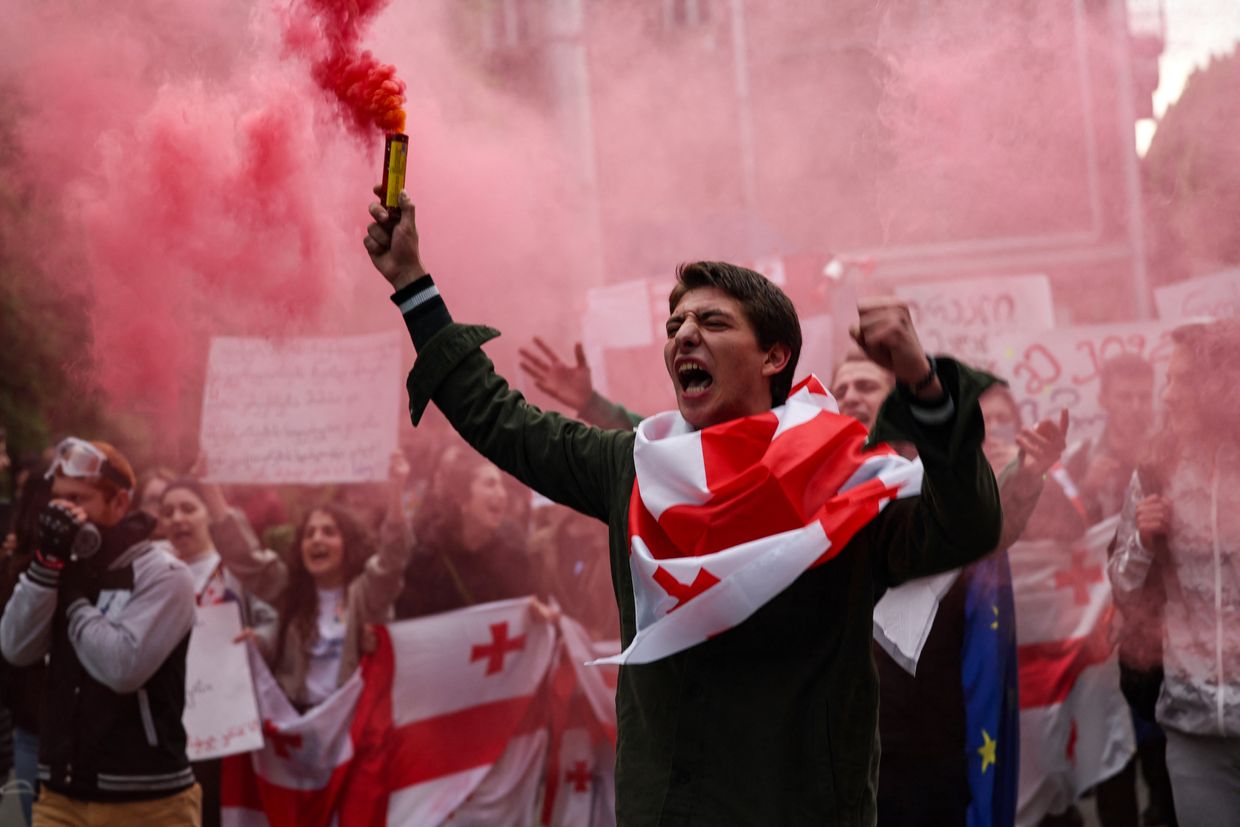EU freezes $32 million in defense funds for Georgia, halts accession process amid ‘low point’ in relations

Brussels has frozen 30 million euros ($32 million) in defense sector funding for Georgia after halting its EU accession process in June, EU Ambassador to Georgia Pawel Herczynski said on July 9.
EU granted candidate status to Georgia at the end of 2023, but relations with Tbilisi deteriorated after Georgia’s parliament passed a “foreign agents” law despite mass protests and a veto by Georgian President Salome Zourabichvili.
The law mirrors repressive Russian legislation used to crack down on Kremlin regime critics, leading Washington and Brussels to denounce the bill as incompatible with Western values.
The European Council said on June 27 that the law represents a back-sliding on the steps set out for Georgia’s candidate status, “de facto leading to a halt of the accession process.”
The EU has now frozen its support for Georgia from the European Peace Facility (EPF), “which amounts to 30 million euros ($32 million) for 2024,” Herczynski announced.
“Other measures are being considered if the situation further deteriorates.”
“It is sad to see EU-Georgia relations at such a low point, when they could have been at an all-time high,” Herczynski said.
The EPF assists in funding security and defense to EU partners, including Moldova, North Macedonia, and the African Union. The Ukrainian Armed Forces have been supported with 6.1 billion euros ($6.6 billion) in EPF funding.
The U.S. Defense Department said on July 5 that it has indefinitely postponed joint military exercises with Georgia amid a comprehensive evaluation of its bilateral relationship with Tbilisi.
Russia’s shadow over Georgia and Kyrgyzstan’s foreign agent laws
The foreign agent laws adopted this year by Georgia and Kyrgyzstan are not fueling mounting authoritarianism and crony rule. They are the result of it. Critics of the countries’ regimes derisively allude to the legislation cracking down on nongovernmental organizations that receive funds from abroa…







